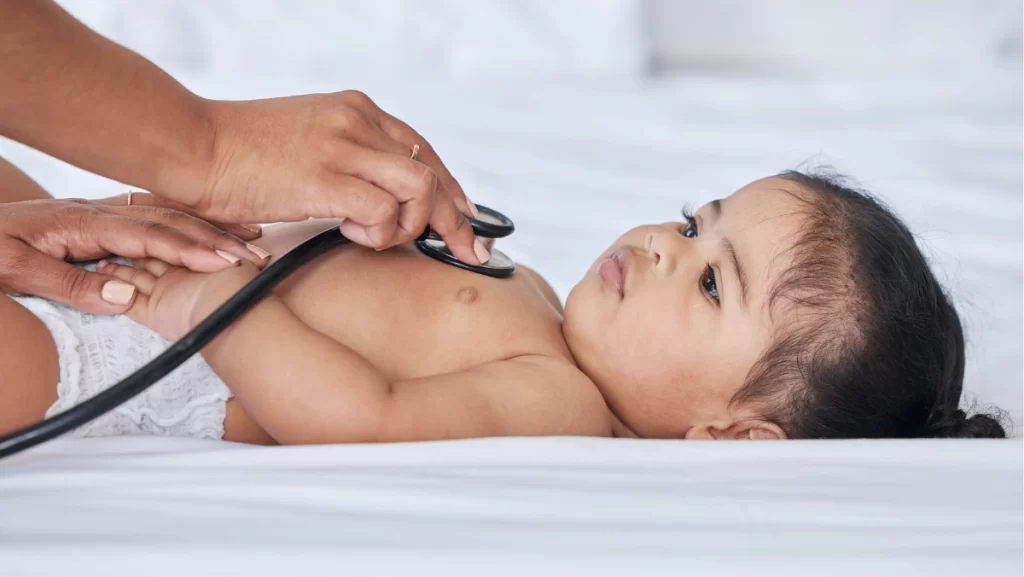Overview
A paediatric hospital in Chennai is equipped to treat various illnesses and conditions that affect children, from newborns to teenagers. These hospitals have specialized pediatric departments with trained doctors and staff who are experts in child health. They offer advanced medical treatments tailored to the unique physiological needs of children. Whether it’s general pediatric care or more complex surgeries, these hospitals ensure that children receive the right care at the right time.
With pediatric illnesses and treatments varying widely—from common colds to life-threatening diseases—hospitals must be equipped to offer a wide array of services. Best paediatric hospital in Chennai are known for their state-of-the-art technology and dedicated departments for specialized treatment, like neonatology treatment, pediatric oncology, and pediatric surgery.
- Age-Specific Care: Paediatricians provide care specifically tailored to the various stages of a child’s development, from the neonatal period through to young adulthood. Their training enables them to recognize age-specific health issues that are crucial for early detection and treatment.
- Preventive Health Measures: Central to paediatrics is the prevention of disease. This includes regular health check-ups, vaccinations, and parental education to foster healthy lifestyles and prevent illness before it starts.
- Holistic Approach: Paediatric care goes beyond just physical health. Paediatricians also focus on the mental and emotional well-being of children, recognizing the impact these factors have on overall health.
- Education and Guidance: Pediatricians play a crucial role in educating parents and children about health management, nutritional needs, and lifestyle choices that lead to sustained health and well-being.
- Chronic Disease Management: Paediatricians are pivotal in managing chronic conditions such as asthma, diabetes, and allergies. They provide tailored treatment plans that evolve with the child’s needs and development.
Types of Pediatric Illnesses
Pediatric illnesses vary greatly in nature, ranging from mild conditions to more serious, chronic diseases. Here are some common types of pediatric illnesses and treatments:
- Respiratory Infections: Common in children, respiratory infections like the flu, colds, and pneumonia can affect the lungs and airways. Treatment may involve rest, hydration, and medications such as antibiotics or antivirals.
- Asthma: A chronic condition affecting the airways, asthma is managed through medications such as inhalers, bronchodilators, and anti-inflammatory drugs.
- Infectious Diseases: Conditions such as chickenpox, measles, and ear infections require vaccines for prevention and sometimes antiviral treatments.
- Allergies: Children may develop allergies to food, pollen, dust, or insect stings. Treatment includes avoiding allergens and using antihistamines or epinephrine for emergencies.
- Digestive Disorders: Disorders like gastroenteritis or constipation are common in children, treated with proper nutrition, hydration, and sometimes medication.
- Skin Conditions: Conditions like eczema and psoriasis require moisturizing creams, antihistamines, or steroids to control symptoms.
Each illness requires specific treatments and care. Some conditions, such as respiratory infections, are treated with antibiotics or antiviral medications, while chronic diseases like asthma may require long-term management.
Pediatric treatment focuses on diagnosing and addressing a wide range of illnesses in children, ensuring their physical and emotional well-being. Common pediatric illnesses and treatments include care for respiratory infections, allergies, gastrointestinal issues, and chronic conditions like asthma or diabetes.
Key aspects of pediatric treatment:
- Accurate Diagnosis: Using child-specific diagnostic tools.
- Tailored Medications: Administered in child-friendly forms such as syrups or chewables.
- Therapies and Counseling: For developmental or behavioral conditions.
- Preventive Care: Regular vaccinations and health checkups.
- Parental Guidance: Educating caregivers about nutrition and hygiene.
If you’re looking for specialized paediatrics treatment in Ayapakkam, consult experienced pediatricians who offer comprehensive care, ensuring a nurturing approach for your child’s recovery.
Symptoms of Pediatric Illnesses
Recognizing the symptoms of pediatric illnesses early can help parents seek timely medical attention. Children often show signs of discomfort or illness in ways that may differ from adults.
Common symptoms to watch for include:
- Fever: A temperature higher than 100.4°F (38°C) may indicate an infection.
- Cough or Wheezing: Persistent coughs or difficulty breathing can be signs of respiratory infections or asthma.
- Rashes: Skin changes like rashes, bumps, or hives may indicate allergic reactions or viral infections.
- Diarrhea or Vomiting: These symptoms could suggest a gastrointestinal infection, dehydration, or food intolerance.
- Unusual Fatigue or Lethargy: A lack of energy or sleepiness can be a symptom of various infections or illnesses.
If you notice any of these symptoms, it’s essential to consult a pediatrician for accurate diagnosis and treatment. In paediatrics treatment in Ayapakkam, doctors can provide expert care to address any concerns and manage symptoms effectively. Early intervention can help prevent complications and promote faster recovery.
Effective recovery for children hinges on a combination of medical care and supportive home environments. To ensure full recovery:
- Adequate Rest: Helps the body heal.
- Nutritional Support: Include fruits, vegetables, and protein-rich foods.
- Hydration: Keeps the body functioning optimally.
- Follow-up Appointments: Ensure the illness is completely resolved.
- Emotional Care: Provide comfort and reassurance.
Specialized facilities offering paediatrics treatment in Ayapakkam focus on swift and holistic recovery for your child. Addressing pediatric illnesses and treatments with a balanced approach helps build resilience and prevents future complications.
Prevention of Pediatric Illnesses
Preventing pediatric illnesses is vital to keeping your child healthy. There are several steps parents can take to help prevent common illnesses:
- Vaccination: Ensure your child is up to date on all recommended vaccinations to protect against preventable diseases.
- Healthy Eating: A balanced diet rich in fruits, vegetables, proteins, and whole grains boosts immunity and reduces the risk of infections.
- Proper Hygiene: Teach your child to wash their hands regularly and maintain good hygiene to prevent the spread of infections.
- Physical Activity: Encourage regular physical activity to improve overall health and boost the immune system.
- Regular Check-ups: Routine pediatric check-ups help identify any potential health issues early on and ensure appropriate care.
- Breastfeeding: For infants, breastfeeding provides essential nutrients and antibodies that help build immunity.
By following these preventive measures, parents can significantly reduce the chances of pediatric illnesses and ensure their child’s well-being.


